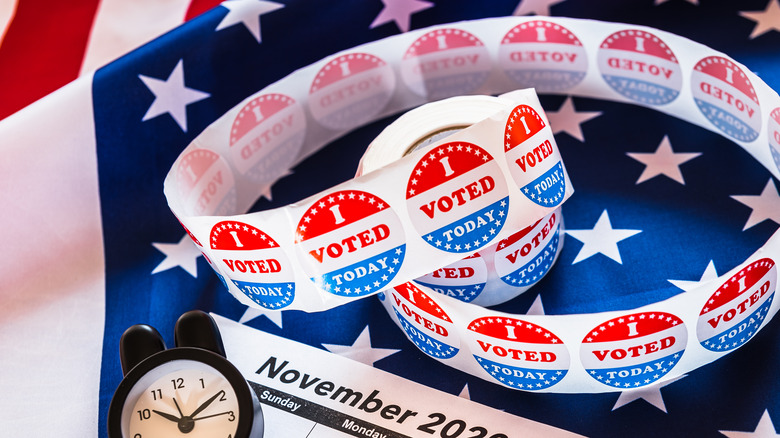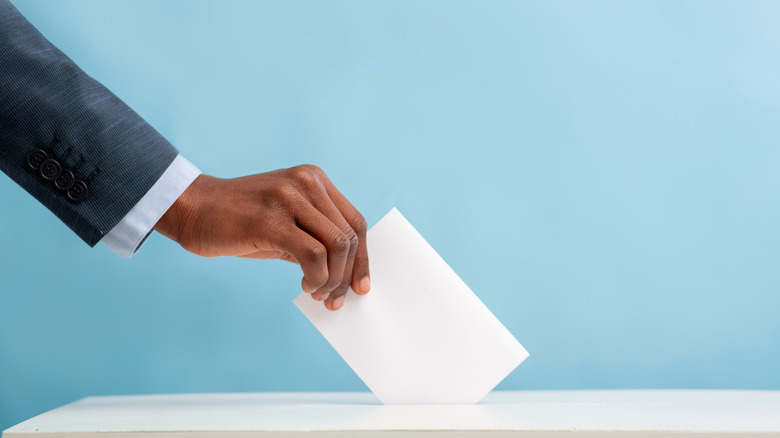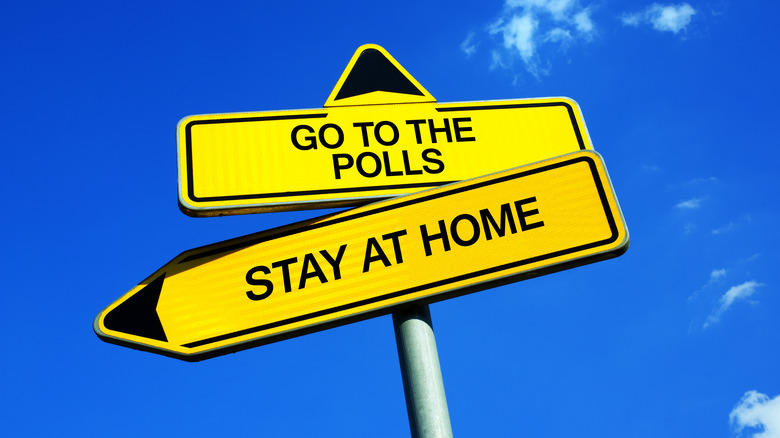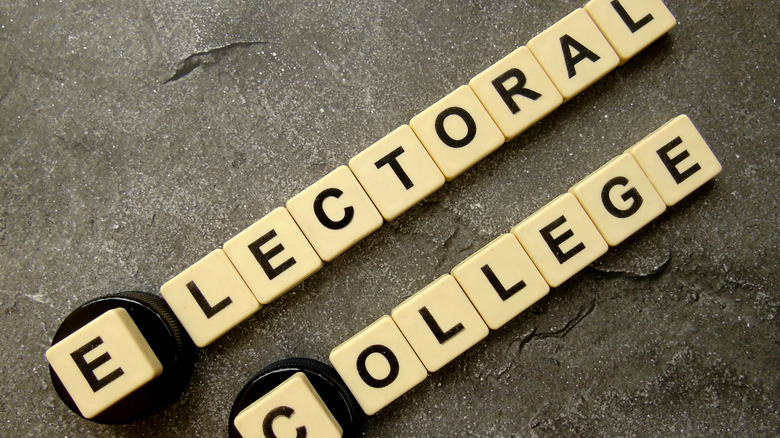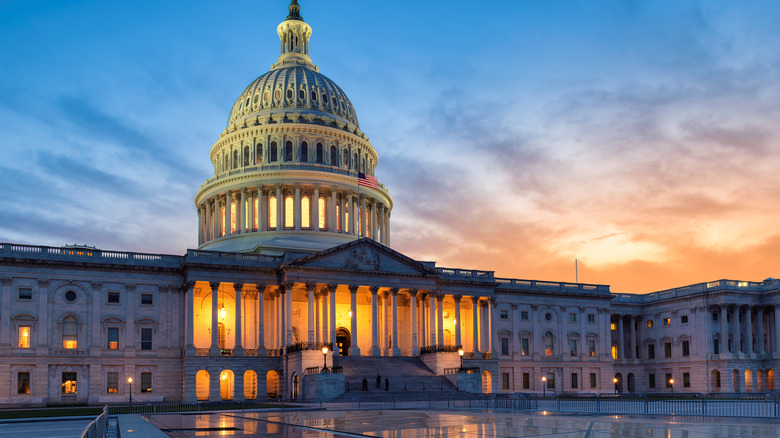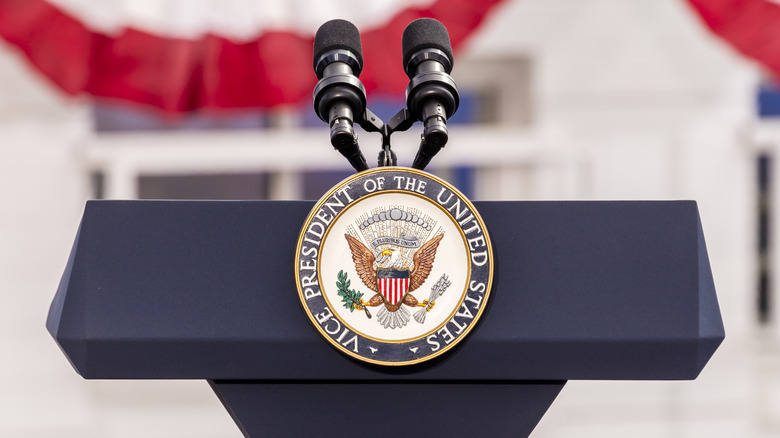What Would Happen If No One Voted For President
It happens like clockwork every time there's an election. Some big brain stands up and says, "Guys! Both the candidates are awful! Heck, they're barely even different! Why bother voting at all? We should all just stay home, to send a message! That'll show 'em!" Then everybody rolls their eyes, and the Responsible Citizen types go out and vote anyway.
Obviously, there have been years when Big Brain's viewpoint was more accurate than others, but let's assume, for a second, that he has a point. Maybe we should all stay home. What would happen if we did? Could we all just dance in the streets singing "No president, no president, la-la-la-la-la-la" for the next four years? Or would it turn into a (decidedly less fun) constitutional crisis?
Let's try that thought experiment. What would happen if nobody, anywhere voted for president? What if you organized a total boycott ... and it succeeded beyond your wildest dreams?
First of all, this scenario would never happen
We should probably start with the obvious: Mathematically, there is absolutely no way this scenario could happen. The Law of Truly Large Numbers (summarized here at Wolfram MathWorld) tells us that as a sample size approaches infinity, the likelihood of even extremely unlikely things happening to at least one member of the sample approaches one. In other words, if there's a lottery with million-to-one odds, people who have won it might be extremely rare — but if you get a group together of a million people who have played the lottery, you're likely to find a winner among them.
Of course, voting is a lot easier to do (and a lot more common) than winning the lottery, and the "sample size" of eligible U.S. voters is much more than a million — more than 239 million, according to USA Today. So the odds that every single one of them would choose to stay home on election day (and not mail in an absentee ballot) are close to zero — even if there were some widespread, organized, and extremely popular election boycott.
In order to avoid a single vote being cast, there would have to be some sort of horrible disaster that prevented an election from happening — or else a coup that seized the government and canceled them. In other words, if literally no one is voting, we've got much bigger problems than who is president. But let's set that aside for a moment.
Have we ever come close?
Bad news for anyone trying to organize a boycott of presidential elections: Even when voter turnout was at its lowest, it still hovered around 50%.
According to the American Presidency Project, the year with the absolute lowest turnout was 1924, when 48.9% of the voting-age population showed up, and the second-lowest was the election four years before, at 49.2%. Neither figure is shocking when you consider both major parties were arguably at the nadirs of their respective popularity at the time — the GOP was mired in scandal, particularly William G. Harding's Teapot Dome business, and the Democrats were struggling to bridge the gap between their Southern, conservative wing and their northern, progressive contingent. In 1924, both parties had nominated bland, conservative candidates that took similar positions on many issues and failed to stir up a lot of excitement among ... anyone (via Britannica).
But even then — with little perceived difference between the candidates and widespread disgust among the populace — about half of all eligible citizens still showed up to vote. So if you're really into the idea of a total election boycott, you've got your work cut out for you.
Whether you vote for president doesn't actually matter all that much
A lot of us might not know this intellectually, but we really don't think about it all that much: Nothing in the Constitution actually gives you the right to vote for president. That "Electoral College" everyone talks about? Those are the 538 people who do the actual voting. When you vote, you're actually just voting for an elector.
"Yes, okay, fine," you're saying, "but what if no one voted for the electors?" Well, that's where things get wilder than you probably realize. Here's what the U.S. Constitution has to say about choosing electors: "Each State shall appoint, in such Manner as the Legislature thereof may direct, a Number of Electors." In other words, the state legislature can choose the electors however it wants. You happen to live in an era when all 50 state legislatures choose to appoint electors by popular vote, but legally there's nothing stopping the legislature from just voting on the electors themselves, choosing by coin flip, throwing darts at rubber ducks, or whatever. According to the National Conference of State Legislatures, selecting electors by popular vote wasn't even particularly common until the late 18th century.
So if nobody voted, that would put state legislatures in a bit of a bind, but then they'd just shrug and pick some electors. Most likely, Republican-controlled legislatures would pick the Republican electors, and Democrat-controlled legislatures would pick the electors pledged to their party.
But what if the electors didn't vote?
Okay, so there would still be an election, even if no private citizens voted. There would still be an election because the Electoral College would still vote. But what if the electors refused to vote? After all, it's a lot easier to convince 538 people to boycott something than it is to convince 239 million.
Well, the Constitution has the answer to this one as well: If no one wins a simple majority from the College, "then from the persons having the highest numbers not exceeding three on the list of those voted for as President, the House of Representatives shall choose immediately, by ballot, the President." So, the House would just vote for someone. There's a catch, though: In this case, each state gets one vote, not each representative. So all 53 representatives from California, for instance, would collectively get one vote. At that point, it would just come down to whether we had a majority of states with mostly Republican delegations or a majority of states with mostly Democratic delegations.
This has actually happened twice in U.S. history, by the way: the elections of Thomas Jefferson in 1801 (via National Constitution Center) and John Quincy Adams in 1825 (via History).
What if Congress refused to choose someone?
Okay, fine. But what if Congress refused to choose a president? What would happen then? Sorry, anarchists, but — constitutionally, at least — we would still have a president.
The Presidential Succession Act of 1947 (via USA.gov) outlines who takes over the office of president in the event of a vacancy. First in line is the vice president, then the speaker of the House, then the president pro tempore of the Senate, and then the members of the cabinet, in the order of their position's seniority (that is, the more recent a cabinet seat was added, the later in line for president the occupant is). The thing about that list is, all three of the elected officials on it serve limited terms. The vice president's term ends at noon on January 20; the speaker's and president pro tempore's terms both end a bit sooner on January 3 (via Senate.gov). So — again, assuming nobody voted — all four of those offices would be vacant as of noon on the 20th.
On the other hand, the members of the cabinet don't technically have terms — they serve simply until they resign or the president sends them away. So while we wouldn't have a president, a vice president or a Congress anymore, we'd still technically have a cabinet — and whoever was secretary of state would be first in line for the Oval Office.
The upshot to all this? Organize a boycott of a presidential election if you want, but you better make sure you like the current secretary of state first.
